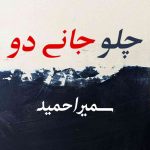
A Journey of Faith and Self-Discovery: Umaima Shafeeq Qureshi’s ‘Allah Ke Waste’
“Allah Ke Waste” is a touching and introspective novel by Umaima Shafeeq Qureshi that goes deep into the intricacies of faith, personal struggle, and societal expectations. With its rich narrative and profound theme, this book propels readers into compelling exploration on contemporary issues through individual and collective experiences.
Basically, “Allah Ke Waste” is the story of its protagonist’s life in which she deeply struggles to address her personal beliefs while facing the expectations placed upon her by her surroundings. The novel starts with clear cultural and religious settings that are to be decisive in shaping the characters’ lives and their decisions. The protagonist stands on a journey of self-discovery and faith; the interplay between inner and outer conflicts shapes her course of thought.
These key themes include the nature of faith, a search for identity, and societal norms impacting personal choice. Umaima Shafeeq Qureshi has treated these themes with great sensitivity and depth to allow readers to get an extremely nuanced view as to how demands within religious and cultural backgrounds sometimes mesh with personal desires and struggles. The title itself says it all: “Allah Ke Waste” loosely translates to “For the Sake of Allah”, which reflects the very core of this novel: a quest for devotion and sacrifice so thoroughly entwined with personal and social challenges.
Character development is one of the major strengths of this novel. The protagonist is chiseled in really fine detail, with her path studded with doubt, revelation, and growth. Qureshi is particularly good at drawing out the protagonist’s inner turmoil as she tries to balance the demands of her faith with those imposed by her community. The minor characters, too, are filled out-and each lends a different layer to the story, a different nuance to the world that the protagonist inhabits. Indeed, through them, Qureshi depicts a larger view of the societal and familial forces that are shaping her protagonist’s experiences.
Allah Ke Waste” is both evocative and contemplative in style. Umaima Shafeeq Qureshi has used descriptive and reflective prose to transport readers into the protagonist’s world, so that one may smell, feel, taste, hear, and see the tale unfold. The language is simple, yet laced with imagery, which echoes through an emotional and spiritual awareness of the story. Qureshi threads the personal narrative of the protagonist well enough with broader societal themes to keep the reader on track. It is rightly paced, thus allowing a deep dive into the process of the protagonist and all challenges she faced.
“Ashmal” has been critically acclaimed due to the interesting and sensitive treatment some of the most complex themes have received. With controversial material handled with forthrightness and elegance, reviewers believe the novel has earned its place as a serious work of modern literature. The way the book has portrayed the tension between one’s personal faith and that which societal expectations are found to be, really speaks to many readers and allows them insight into this universal struggle for self-understanding and acceptance.
Other proof of the influence wrought by this novel is the way it evokes thought and deliberation. Therefore, though “Allah Ke Waste” engages in matters pertaining to faith, identity, and the expectations of society, it ultimately allows readers to reflect on their own thought and experiences. The stirring yet engaging exposure to these themes in the book makes this work highly readable for those interested in contemporary concerns and personal development.
This is a powerfully introspective novel by Umaima Shafeeq Qureshi, deeply questioning faith and identity, along with societal expectations. The richness of this narrative lies in the way the story is told, the well-developed characters, and the style of writing. “Allah Ke Waste” stands out for the gravity with which sensitive and intelligent insight into the complex themes is rendered, adding weight to contemporary literature.



















